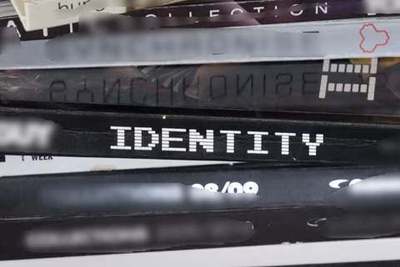
Photo (C) Ibrahim Chalhoub
Erikson was definitely right to term the period during which the major development task of a human being as identity crisis. He created his theory about the adolescents of the western world, which was widely accepted by most of the psychological perspectives as a universal truth. According to the famous psychoanalyst, the role-experimentation period should be resolved by the early to mid-twenties for the individual to achieve an identity. Otherwise, he or she will suffer from an identity confusion where there will be no consistent sense of self, nor a set of internal standards for evaluating the sense of self or areas of life. Mind you that these are the individuals who create their nations which either achieve their identity or go through the cycle of suffering just like their citizens.
The major question is whether Erikson’s theory is truly universal or it is, like many other theories, subject to the relativism of anthropology. The Middle-East could be the sieve.
Nowadays, the Arab Spring is heading most of the stories in the MENA region. For such a highly important major change the political and humanitarian basics are put forward neglecting the importance of other elements. Identity is a primary factor where psychology, sociology, anthropology, and other perspectives of human life work together to find a consensus definition.
According to Roger Eddé, an expert in the politics of the Arab world, there is no homogeneous identity in any Arab Muslim country. Instead, there are minorities, tribes, and different ethnic groups.
On the other hand, during a recent visit to Turkey, a tourist guide was raising the question of the current identity Turkish people. He went on wondering about the issue of the different ethnic groups like Kurds, and Armenians.
Lebanon is not an exception. On the contrary, it is a very complex prototype of identity confusion within a nation. It is a group of non-formal federations based on confessionalism (18 religions), ethnicity, and relations to external powers, among other issues. Some Lebanese don’t even admit being Arabs; rather they consider themselves as Phoenicians. This has to do with the western concept of Arabs being Muslim nations of the Gulf only. This has created a major debate about two decades ago when the Lebanese government finally decided to officially announce that Lebanon has an “Arabic facet” (or face, as some would prefer to say).
Back to the Arab Spring, people are trying to defend their rights to be treated as humans against dictatorships and political abuse. But that’s not all! They are searching for their identity. These are not adolescents trying roles in order to decide what fits them and what doesn’t in order to adopt or refute aspects that add-up to their personality. These are adults who passed through the identity crisis phase and, supposedly, went out of it with an identity achievement. We are speaking about nations that have been present since hundreds and thousands of years.
Now that time introduced itself into the equation, the Lebanese actor Rifaat Torbey once exclusively told the Podcast Journal that Arabs were important when they were referred to by Ibn (son of) like Ibn Khaldoun, but when they started to be referred to as Abu (father of) they had nothing left to offer. They have lost their identity.
The major question is whether Erikson’s theory is truly universal or it is, like many other theories, subject to the relativism of anthropology. The Middle-East could be the sieve.
Nowadays, the Arab Spring is heading most of the stories in the MENA region. For such a highly important major change the political and humanitarian basics are put forward neglecting the importance of other elements. Identity is a primary factor where psychology, sociology, anthropology, and other perspectives of human life work together to find a consensus definition.
According to Roger Eddé, an expert in the politics of the Arab world, there is no homogeneous identity in any Arab Muslim country. Instead, there are minorities, tribes, and different ethnic groups.
On the other hand, during a recent visit to Turkey, a tourist guide was raising the question of the current identity Turkish people. He went on wondering about the issue of the different ethnic groups like Kurds, and Armenians.
Lebanon is not an exception. On the contrary, it is a very complex prototype of identity confusion within a nation. It is a group of non-formal federations based on confessionalism (18 religions), ethnicity, and relations to external powers, among other issues. Some Lebanese don’t even admit being Arabs; rather they consider themselves as Phoenicians. This has to do with the western concept of Arabs being Muslim nations of the Gulf only. This has created a major debate about two decades ago when the Lebanese government finally decided to officially announce that Lebanon has an “Arabic facet” (or face, as some would prefer to say).
Back to the Arab Spring, people are trying to defend their rights to be treated as humans against dictatorships and political abuse. But that’s not all! They are searching for their identity. These are not adolescents trying roles in order to decide what fits them and what doesn’t in order to adopt or refute aspects that add-up to their personality. These are adults who passed through the identity crisis phase and, supposedly, went out of it with an identity achievement. We are speaking about nations that have been present since hundreds and thousands of years.
Now that time introduced itself into the equation, the Lebanese actor Rifaat Torbey once exclusively told the Podcast Journal that Arabs were important when they were referred to by Ibn (son of) like Ibn Khaldoun, but when they started to be referred to as Abu (father of) they had nothing left to offer. They have lost their identity.










 Les dernières actus de Palestine
Les dernières actus de Palestine








